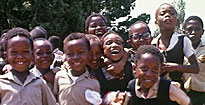
Develop Citizenship projects in partnership with your twin school.
Here are some useful links:
Save the Children's School Link project provides resources for Primary Schools to find out more about life in schools in China and Pakistan
Download Glade's Primary School pack for help setting up a Global Focus week in your school
Newsround's Citizenship pages- CBBC content for teachers
Cool Planet - Oxfam's children's pages
Food Force - World Food Programme's computer game
Global Gateway- Teaching citizenship
Voices from Rwanda- Looking to the future
Global Footprints - Classroom activities for global citizenship
Link Community Development - lesson plans and teaching ideas
The Young Person's Commission for Africa
Aduna- workshops for Key Stage 3 and 4
UNICEF's Voices of Youth - for children around the world
Plan Identity Project - Global collaboration project about ID and human rights
The Young People’s Commission for Africa – Pupils present the issues that matter to them to the G8
Rafi.ki - Large online community of schools. Lots of Citizenship based lesson plans
Intuitive Media - SuperClubsPLUS (Primary) and GoldStarCafe (Secondary) the largest UK based online protected learning communities of children and teachers.
Both offer a huge range of Citizenship activities, facilities and projects. Check out One World Zone - funded by DIFID, an engaging Learning Channel where editorial is changed daily. Children participate in Hot Seats hosted by people from around the world, publish articles related to Global issues and chat safely in mediated forums, sharing their concerns about people and the planet.
Disclaimer - the BBC is not responsible for the content of external websites.
Title: Ghana Week
Learning objective: Understanding of West African arts & crafts, children's games and cuisine
Age range: Up to 11
School: Southfields Primary, Coventry, West Midlands
Teacher: Jo Hallett - Deputy Headteacher
Twinned with: Nyogbare School near Bolgatanga in the far north of Ghana
What you need:
- Someone to co-ordinate and schedule the week.
- Guidance from partner school and other sources - books from LEA Teacher Centre and the local Development Education Centre - on ideas for West African arts activities, art materials and methods of creating batik. Collect together equipment and material - eg old cotton sheets, fabric paint.
- If possible, arrange for one or more visiting artists to come into school.
- Guidance from partner school, and other sources, on Ghanaian games and how to play/make them.
- Ghanaian recipes, Fair-trade cooking ingredients, posters and literature from Fair Trade organisations.
- Letter to parents informing them of timing of events and requesting willing parents to help
The Idea: Each summer the children hold a Ghana Week with arts activities based on Ghana and Africa in general. Children are grouped in four or five vertical groups across all ages (this year, named after Ghanaian towns/cities) and each group takes part in every activity, in a roundabout organisation. The activities include Ghanaian games (indoor and outdoor), batik, printing and pattern making, drama and stories, clay-modelling and fair-trade cooking, drumming workshops.
Possibly round off week with a special assembly when best pieces of art work are displayed, experiences shared.
Benefits: The international link is an ever present focus in the school and the children thoroughly enjoy the activities. It brings the school nearer to our partner school so far away in Ghana. The Ghanaian school are able to offer us their expertise and knowledge and we learn from them. Children can appreciate the richness of African culture through music, dance and the arts.
We can send them photos and feedback on our experience of their culture.
We can reciprocate and share some of our games, art work, traditional cooking, with them.
Issues: Good forward planning and co-ordination required. Extra in-class support from parents a big help. It's important to follow-up by sending pictures and write-ups of the week to the partner school so they can see what we learnt and how we enjoyed ourselves.